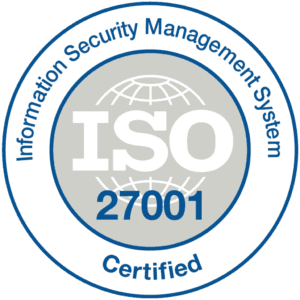In today’s digital age, cybersecurity is paramount for law firms to protect sensitive client information and maintain trust. However, even the most robust cybersecurity systems can be compromised by human error. That’s why cybersecurity training for law firm employees is essential. Let’s delve into five critical aspects of cybersecurity training that every law firm should prioritize:
Phishing attacks remain one of the most common and effective methods used by cybercriminals to breach organizations’ security defenses. Law firm employees must be trained to recognize phishing attempts and respond appropriately. Training should cover identifying suspicious emails, verifying the authenticity of links and attachments, and understanding the consequences of falling victim to phishing scams. Regular phishing simulation exercises can also help reinforce awareness and teach employees how to react in real-world scenarios.
Law firms handle vast amounts of sensitive client data, making data protection and privacy compliance a top priority. Employees should receive training on the firm’s data protection policies, including proper handling and storage of confidential information, encryption protocols, and data retention practices. Additionally, training should cover relevant regulations such as GDPR, CCPA, and industry-specific guidelines, ensuring that employees understand their responsibilities in safeguarding client data and mitigating the risk of regulatory penalties.
With the rise of remote work and BYOD (Bring Your Own Device) policies, law firms face increased security risks associated with employees accessing firm data from personal devices and networks. Training should focus on best practices for securing devices and networks, such as using strong, unique passwords, enabling multi-factor authentication, keeping software and operating systems updated, and utilizing secure VPN connections when accessing firm resources remotely. Employees should also be educated on the dangers of public Wi-Fi networks and the importance of encryption for data transmitted over unsecured connections.
Cybercriminals often exploit human psychology through social engineering techniques to manipulate employees into divulging sensitive information or performing unauthorized actions. Training should educate employees on common social engineering tactics such as pretexting, baiting, and tailgating, as well as how to recognize and respond to suspicious requests or interactions, both online and offline. By fostering a culture of skepticism and vigilance, employees can help thwart social engineering attacks and protect the firm’s assets.
Despite best efforts, security incidents may still occur. Therefore, law firm employees must understand their role in incident response and reporting procedures. Training should outline the steps to take in the event of a security breach, including who to contact, how to preserve evidence, and when and how to escalate the incident. Additionally, employees should be encouraged to report any security concerns or potential vulnerabilities promptly, fostering a proactive approach to identifying and addressing security threats before they escalate. Regular drills and tabletop exercises can help reinforce incident response protocols and ensure that employees are prepared to act swiftly and decisively in the event of a cybersecurity incident.
In conclusion, cybersecurity training is not a one-time event but an ongoing process that requires continuous education and reinforcement. By prioritizing these 5 training areas, law firm employees can become the first line of defense against cyber threats, safeguarding client data and the firm’s reputation.
Minimize risk and maximize revenue with managed IT services.

* one hour
Locations
© 2025 All Rights Reserved | Web Design by MVO Marketing | Privacy Policy